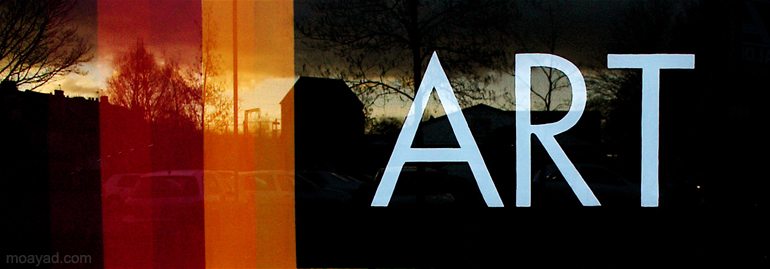The Dopamine Clinic, a DC-based artists’ collective, has recently published the first issue of its new magazine, Dopazine. This underground art magazine is unique in the DC metropolitan area, presenting work from artists in D.C., Maryland,Virginia, and Delaware.
Dele “Parlez-Vous” Akerejah is the founder and chief executive officer of the Dopamine Clinic and its new magazine. He specializes in collage artwork but also draws, writes, and raps. He sells handmade, one-of-a-kind graphic novels comprised of magazine cut-outs, photos, drawings, and quotes. His eclectic work speaks to the vast range of forms that art can take.
Dopazine’s creative director and the clinic’s chief operating officer goes by the artist name of “the Minister of Propoganda.” He is also known as Monsoor Ali and DJ Afterthought. He is one of the main contributors to the first issue, which focuses largely on the mission of the magazine and its affiliated artists. Carlos Jennings is the chief marketing officer of the Dopamine Clinic and the information technology “wizard” for the initiative.
In an interview, Ali articulated the mission of Dopazine to be, “the exposition of underground art in a way people can appreciate.” The magazine strives to be inclusive of all artists using all art forms. Each page includes writing ranging from essays to poems to interview transcripts. Behind the text are drawings and paintings by Dopamine Clinic’s affiliated artists. Ali explained that, “the magazine itself is a work of art.”
From philosophy to mental illness to racism, the magazine covers a spectrum of topics. Each new edition of the magazine will focus on a different theme.
The front cover of the first issue is an abstract, brightly-colored drawing. There is no text. The back cover, however, gives the name of the magazine and some teasers about the content. According to Akerejah, this reverse cover is symbolic of the “underground” artwork portrayed inside. More importantly, the uninterrupted artwork on the front cover clearly articulates the point that the magazine itself is the art.
On February 23, the Dopamine Clinic set up a booth at RAW: Natural Born Artists, an event hosted at Penn Social in Washington, DC. This event occurs in cities across the world from February to October, culminating in the RAWards in Hollywood, CA. Each RAW event spotlights local artists specializing in film, fashion, music, visual art, makeup artistry, and performance art. These events give artists the opportunity to showcase their work in “one night circuses of creativity”.
Between Akerejah’s graphic novels and bars of “dope soap”, the Dopamine Clinic put on display copies of the first edition of its new magazine. The executive team brought five copies to sell. They successfully sold three, but two were taken from the table sometime during the night. When asked about the mysterious disappearances, Ali responded, “I think it’s awesome that people are stealing our sh*t.”
Annette Roche, a RAW attendee, purchased one of the few copies of Dopazine. She chose to support Ali and Akerejah because they were the friendliest vendors of the night and told her an inspiring story about their roots. Roche said she loves that the Dopamine Clinic artists are expressing themselves in a unique, real way. She explained, “I like their vibe and I’m ready to support black people doing their thing.”
The next issue of this quarterly magazine will come out in April. To support the Dopazine, visit the Dopamine Clinic’s facebook site <https://www.facebook.com/Thedopamineclinic> or send a mail order to 1400 Sheridan St. NW #203, 20011. The magazine costs $12 per issue.
When asked what his long-term goal with Dopazine is, Akerejah said he hopes to, “give a voice to the unspoken members of the underground, and to someday sell 10,000 copies every time the magazine comes out.”




